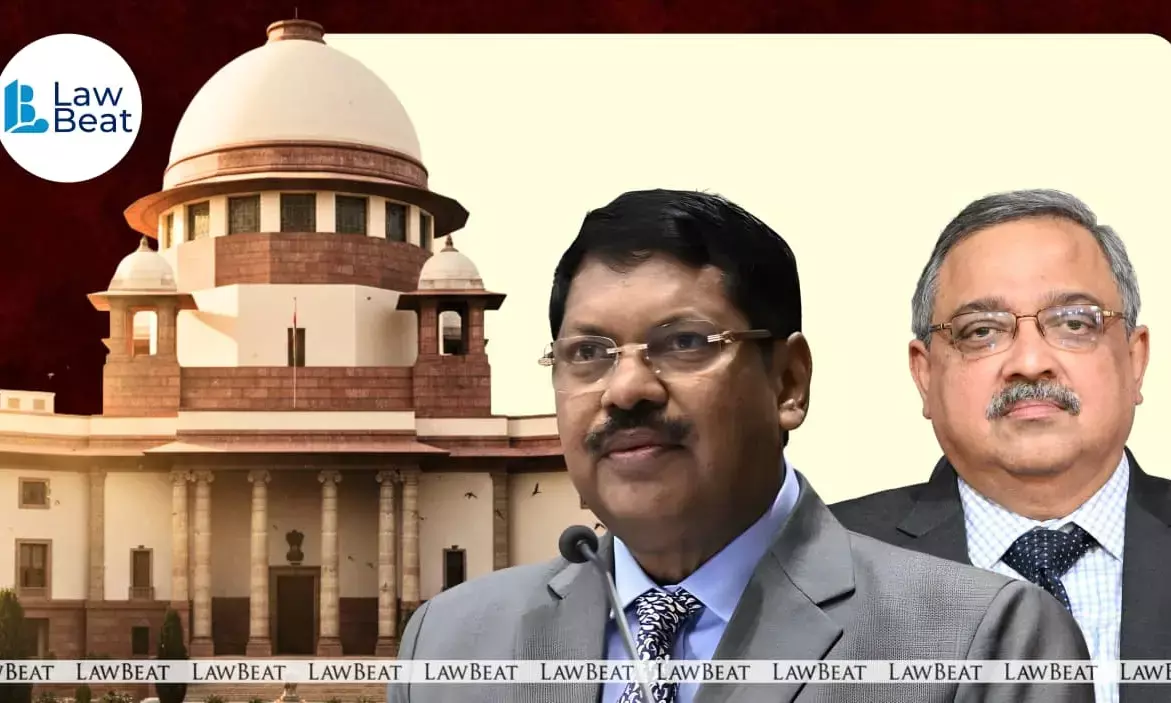Can Teachers Be Sacked for Not Clearing TET at Appointment? Supreme Court Says Not Always

The Supreme Court orders reinstatement of two terminated UP teachers in TET qualification matter
The Supreme Court has on October 31, 2025 provided relief to two Assistant Teachers of a junior high school, terminated after six years of service, on the ground that they were not Teachers Eligibility Test (TET) qualified as per mandate of the Right to Education Act at the time of their appointment.
A bench of Chief Justice of India B R Gavai and Justice K Vinod Chandran found that the non interference in the matter by the Allahabad High Court's single judge and the division bench was erroneous as the requirement to qualify TET was to be complied with by March 31, 2019, by when the appellants had undisputedly passed the TET.
Appellants Uma Kant and another person approached the Supreme Court against the High Court's division bench order of May 1, 2024 which upheld dismissal of their writ petitions by the single judge on March 12, 2024.
By a notification of August 23, 2010, the National Council for Teacher Education, in exercise of the powers conferred by sub-section (1) of Section 23 of the Right of Children to Free and Compulsory Education Act, 2009, laid down minimum qualifications for a person to be eligible for appointment as a teacher in Class I to VIII in a “school” referred to in clause (n) of Section 2 of the RTE Act, with effect from the date of the notification.
It was mandated to pass the Teacher Eligibility Test, to be conducted by the appropriate government in accordance with the guidelines framed by the NCTE for the purpose, as a minimum qualification.
By an amendment on August 9, 2017, the second proviso to sub-section (2) of Section 23 of the RTE Act was added and it provided that every teacher appointed or in position as on March 31, 2015, who does not possess minimum qualifications as laid down under sub-section (1) would acquire such minimum qualifications within a period of four years from the date of commencement of the amendment.
The appellants applied for the post in terms of an advertisement issued by the management of Jwala Prasad Tiwari Junior High School, Bhauti, Kanpur Nagar, Uttar Pradesh, a recognized and aided school.
On March 13, 2012, the Basic Shiksha Adhikari (BSA) approved the selection of the appellants. As a result, they joined the post of Assistant Teacher on March 17, 2012.
Notably, the appellant No. 2 cleared the TET on November 25, 2011. The appellant No. 1 also cleared the TET on May 24, 2014.
By way of an amendment on August 9, 2017 to Section 23 of the RTE Act, it was provided that every teacher, appointed or in position as on March 31, 2015, who does not possess minimum qualifications as laid down under sub section (1) shall acquire such minimum qualifications within a period of four years from the date of the said amendment.
On July 12, 2018, the services of the appellants were terminated by the BSA on the ground that they did not have a TET qualification at the time of their appointment.
Challenging the dismissal of their plea, the appellants contended that the first TET was conducted by the respondent-State on November 13, 2011, and the appellants passed the same in 2011 and 2014. They submitted that since the appellants qualified TET within the extended time prescribed by the RTE Act, they should not have been terminated for non-possession of TET certificate at the time of their appointment and that they should be reinstated.
The state counsel, however, submitted as per the mandate of the RTE Act, the appellants ought to have obtained a TET certificate at the time of their appointment. He, however, fairly admitted that subsequent to their appointment, the appellants obtained TET certificate by 2014.
The Supreme Court noted that the appellants had acquired the minimum qualifications, including TET, by March 24, 2014, while the second proviso to sub-section (2) of Section 23 of the RTE Act provided that the unqualified teachers appointed/in position as on March 31, 2015 would acquire minimum qualifications before March 31, 2019.
"We, therefore, fail to see as to how the appellants can be said to be unqualified on the date of their termination i.e., July 12, 2018, when undisputedly they had already qualified the TET by March 24, 2014,'' the bench said.
Court found that the High Court recorded that the appellants had qualified TET by 2014. However, it proceeded on the premise that since the appellants did not possess a TET pass certificate at the time of their appointment, so their termination, after working for six years, need not be interfered with.
The termination order showed that the only basis was that the appellants had not qualified the TET. It was not contended that the candidature of the appellants was found to be unsuitable for the post of Assistant Teacher.
In such a situation, the top court set aside the High Court's orders as well as the order recalling the selection of the appellants on the posts of Assistant Teachers.
The bench finally directed the respondents to forthwith reinstate the appellants to the post of Assistant Teacher in the Jwala Prasad Tiwari Junior High School, Bhauti, Kanpur Nagar, Uttar Pradesh, without back-wages, but with continuity of service and all other consequential benefits, including seniority, etc.
Case Title: Uma Kant And Another Vs State of UP And Others
Judgment Date: October 31, 2025
Bench: Chief Justice of India B R Gavai and Justice K Vinod Chandran
